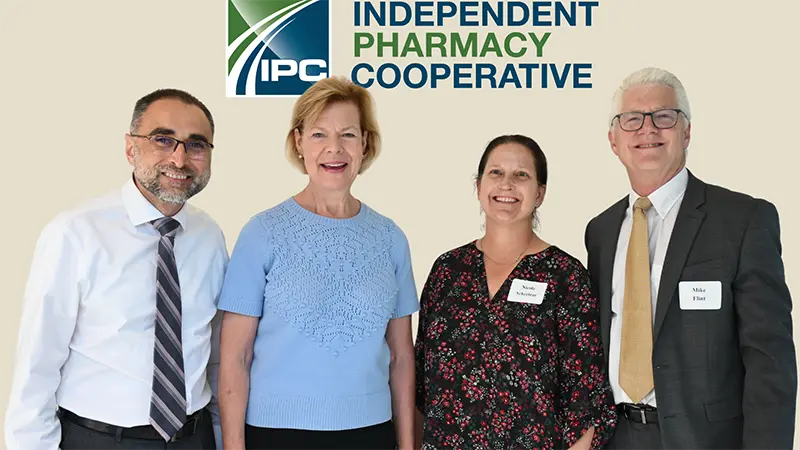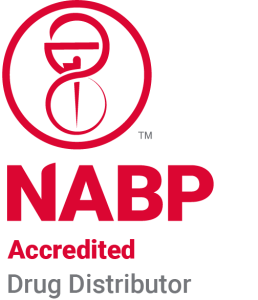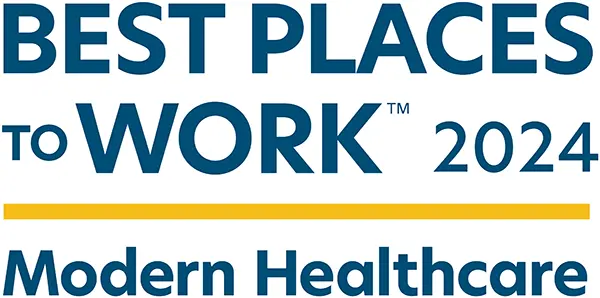Legislative Advocacy: Reflecting on 2024
As we launch into 2025, it’s essential to reflect on the strides made for community pharmacy over the past year. This past year was marked by relentless advocacy, focus on strategic initiatives, and unwavering support dedicated to independent pharmacies. Let’s take a moment to review those efforts and achievements and look forward to the opportunities that lie ahead.
2024 Year in Review
Pharmacy Advocacy 101
2024 began with a powerful call to action through our Pharmacy Advocacy 101 blog. This post emphasized the importance of pharmacists getting involved in legislative advocacy to drive change in your industry. We encouraged pharmacy owners, pharmacists, and industry workers to invite legislators into your stores, share your challenges and successes, and actively participate in advocacy efforts. The message remains clear: your voice matters, and your involvement is crucial.
In 2025 look for additional information and resources to help you increase your advocacy efforts and fight for valuable change to help you thrive. Additionally, maintain a watchful eye for new opportunities to make your voice heard as we send out our voter voice advocacy notifications. Your participation in these campaigns is paramount to the success of legislation that will benefit independent pharmacies like yours.
Lobbying for Change in Washington

In March 2024, IPC’s leadership team and board of directors conducted a fly-in to Washington, D.C., to meet with legislators. The goal was to educate and inform pharmacy owners and legislators about the necessary changes in the industry. Key topics included prohibiting spread pricing in Medicaid Managed Prescription Programs, transparency and reform for Pharmacy Benefit Managers (PBMs), and championing pharmacists as healthcare providers. An additional fly-in in November focused on engaging new members of Congress to discuss how critical these reforms are for the survival of community pharmacies.
As an independent pharmacy owner, you know the challenges you face. Progress has been made, but now is the time to be louder than ever. The fight for reform isn’t over, and our advocacy must continue. Last week, IPC’s government relations team returned to Washington, D.C., to continue this vital work. This time, they joined forces with key industry partners, including the National Community Pharmacists Association (NCPA), the National Association of Chain Drug Stores (NACDS), Pharmacists United for Truth & Transparency, the American Pharmacists Association (APhA), American Pharmacies, and the Compliant Pharmacy Alliance Cooperative. Together, this coalition represents the unified voice of community pharmacies across the nation.
The focus of these meetings was to solidify independent pharmacy priorities for 2025. Two key issues emerged as top priorities: the need for comprehensive PBM reform and the establishment of fairer rules for the CMS Medication Negotiated Pricing Program. These reforms are essential to ensuring that independent pharmacies can continue to provide accessible, affordable, and high-quality care to their patients.
During their time in D.C., the group had the opportunity to meet with legislative staffers and lawmakers to discuss these priorities. The goal was clear: to secure commitments from legislators to support these critical reforms as they move through the legislative process. These conversations were not just about policy—they were about people. They were about the patients who rely on independent pharmacies for their medications and the communities that depend on these pharmacies as pillars of health and wellness.
As we reflect on the progress made over the past year and look ahead to the work still to be done, one thing is certain: IPC and our partners will never stop fighting for independent pharmacies. The road to reform is long, but with unwavering determination and a united voice, we will continue to push for the changes our industry needs.
Stay tuned for updates on our advocacy efforts and how you can get involved. Together, we can ensure that independent pharmacies thrive for years to come.
State Medicaid Managed Care Reforms
In April, we discussed state Medicaid reforms, highlighting the efforts to deliver for taxpayers, patients, and community pharmacies. States like West Virginia and Ohio led the way with reforms that resulted in significant savings and better reimbursement for pharmacies. These reforms are a testament to the power of state-level advocacy and the positive impact it can have on community pharmacies.
Supporting Community Pharmacies in Legal Battles
In May, IPC rallied support for an Amicus Curiae brief submitted to the Ohio Supreme Court in a case involving a community pharmacy. The case, which centered on the immunity provided by the PREP Act for COVID-19 vaccine administration, was ultimately dismissed by the Ohio Supreme Court. This outcome underscores the importance of legal protections for pharmacies providing critical patient care during public health emergencies.
DSCSA Waivers & Exemptions
June brought an update to the Drug Supply Chain Security Act (DSCSA) waivers and exemptions. The FDA announced a two-year extension for small dispensers, providing community pharmacies with additional time to comply with enhanced drug distribution security requirements. This extension is a significant relief for small pharmacies, allowing you to adapt to new regulations without undue pressure.
FTC Report on PBM Practices

In July, the Federal Trade Commission (FTC) released a report on the predatory practices of PBMs. The report highlighted how PBMs inflate drug costs and squeeze community pharmacies, negatively impacting patient access to medications. IPC continues to advocate for PBM reform, emphasizing the need for transparency and fairness in the prescription drug market.
Following the FTC report, the House Oversight Committee held a hearing on PBM practices in August. The hearing further exposed the detrimental impact of PBMs on independent pharmacies and reinforced the need for legislative action. IPC remains committed to advocating for reforms that protect the interests of community pharmacies.
Ongoing Advocacy: PBM Reform
Throughout 2024, IPC joined forces with the National Community Pharmacists Association (NCPA) to urge members to communicate with your legislators about the importance of PBM reform and share what it would mean to you to have meaningful PBM reform. While 2024 was and unsuccessful year in the battle for federal PBM reform, it was the closest we have come to achieving a vital win for community pharmacies. The fight for PBM reform is far from over, and we will continue to request your action in 2025 to push for meaningful legislative changes.
Engaging with Legislators and Industry Leaders

In October, IPC had the privilege of hosting Senator Tammy Baldwin at our headquarters. Senator Baldwin met with IPC employees and members to discuss the challenges faced by pharmacy owners.
Looking Ahead to 2025: State Legislative & Regulatory Developments
- Illinois: IPC is working towards an administrative contract change to mandate transparent, cost-based pharmacy prescription reimbursement by 2025.
- Michigan: IPC advocates for pharmacist provider status bills, including test-and-treat services and independent prescribing authority for hormonal contraceptives.
- Iowa: The Iowa Legislature will focus on passing PBM reform bills in 2025, with strong support from key legislative leaders.
- Ohio: Ohio’s SB 95, effective March 18, 2025, authorizes remote dispensing pharmacies and prohibits restrictions on mailing or delivering drugs to patients.
IPC’s 2025 Federal Priorities
With Senate Majority Leader John Thune pushing for major bills along with Senators Hawley & Warren’s bipartisan support for breaking up vertically integrated PBM conglomerates, we anticipate significant opportunities for reform. As we look forward, IPC’s Government Relations team is laser-focused on two major federal priorities for 2025:
Reforming the CMS Proposed Part D Rule for 2026
The current CMS proposed rule for the 2026 contract year places an unfair and unsustainable burden on community pharmacies. If implemented as written, the rule would require pharmacies to front program costs while waiting a month or more for back-end payments—a financial strain that was never the intent of Congress. Additionally, PBMs would be mandated to enforce participation in this program through Part D contracts with pharmacies, further limiting flexibility and control for independent pharmacies.
IPC is advocating for the following changes to the proposed rule:
- Pharmacies cannot afford to front program costs while waiting for delayed reimbursements. CMS must address this financial burden to ensure pharmacies can continue to operate.
- The rule must allow pharmacies to terminate participation in contracts with Part D sponsors without cause, providing greater autonomy and protection for independent pharmacies.
- CMS must require Part D plan PBMs to pay pharmacies no less than the Maximum Fair Price (MFP) plus a full cost of service professional dispensing fee.
- Manufacturers must be required to reimburse pharmacy payments within 14 days of filling a prescription, ensuring timely cash flow for pharmacies.
These changes are critical to preserving the viability of independent pharmacies and ensuring they can continue to serve their communities.
Securing Meaningful PBM Reform

The fight for PBM reform is far from over. IPC stands with community pharmacies across the nation in advocating for a meaningful PBM reform bill that addresses the predatory practices harming independent pharmacies and their patients. We will continue to work alongside partners like NCPA and others to amplify the voice of independent pharmacies.
Through initiatives like NCPA’s Finish the Fight campaign and storytelling efforts such as the Modern Medical Mafia docuseries (coming soon to Amazon Prime), we are helping to shine a light on the urgent need for reform. Stories like that of Cole Schmidtknecht, who tragically lost his life after his PBM raised the price of his asthma inhaler from $65 to over $500, remind us why this fight is so important
In the coming months, there will be opportunities to include PBM reforms either as a standalone bill, through reconciliation or a continuing resolution to fund the government. The Congressional Budget Office states that PBM reforms will save taxpayers $5 billion. We are urging federal legislators to seize this opportunity and prioritize reforms that benefit independent pharmacies and the patients you serve.
The Road Ahead
As we reflect on the progress made over the past year and look ahead to the work still to be done, one thing is certain: IPC and our partners will never stop fighting for independent pharmacies. The road to reform is long, but with unwavering determination and a united voice, we will continue to push for the changes our industry needs.
Stay tuned for updates on our advocacy efforts and how you can get involved. Together, we can ensure that independent pharmacies thrive for years to come.






